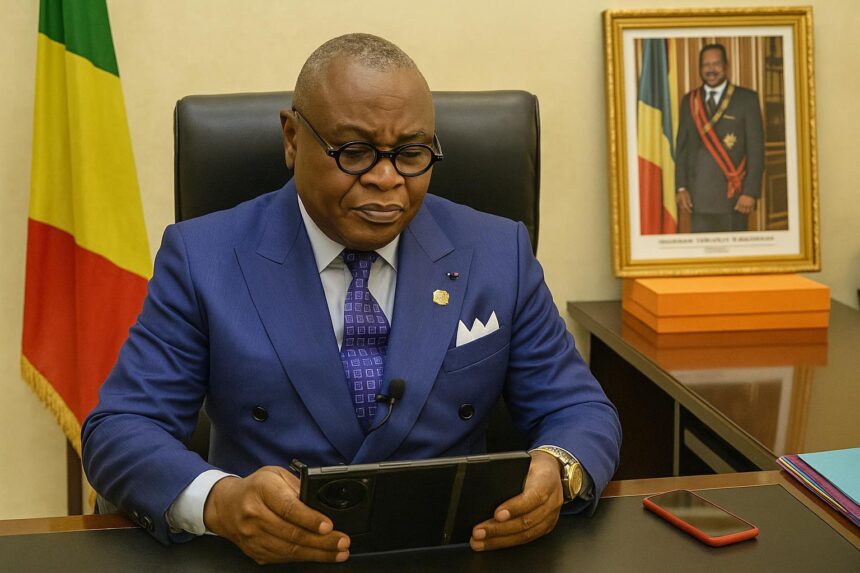Brazzaville pushes postal reboot
From the bright auditorium of the postal ministry in central Brazzaville, Minister Léon Juste Ibombo laid out an ambitious promise: Congo will keep turbo-charging its post offices until every counter, parcel and money order speaks the language of the digital age.
The pledge, delivered on the eve of World Post Day, fits the government’s broader drive to connect households and businesses, cut service gaps and showcase a modern image of the nation in regional trade corridors.
World Post Day, global theme, local answer
This year the Universal Postal Union chose the slogan “Citizens’ Post, local service, global reach”, nudging the 192 member states to bring time-honoured mail counters into the era of apps, e-commerce and data analytics (Union Postale Universelle).
For Congo, the theme arrived weeks after the Dubai UPU Congress reset sector targets for 2021-2025, calling for greener logistics, secure digital identities and stronger South-South exchanges (UPU Congress 2021).
Interconnected counters, one national backbone
Minister Ibombo highlighted the recently completed interconnection of forty-nine urban and rural post offices through fibre and 4G, an upgrade that lets clerks issue tracking numbers in real time, process mobile money transfers and offer basic banking without customers crossing city limits.
Technicians from La Congolaise des Postes report that average transaction times have fallen from fifteen minutes to under five, a gain welcomed by commuters who can now pay utility bills during a single bus stop instead of taking half a morning.
Digital tools powering small businesses
Behind the counters, new software links inventory scanners to customs manifests, trimming the paperwork that once slowed the shipping of locally roasted coffee or Pointe-Noire fashion accessories toward Kinshasa or Abidjan.
“We used to pray parcels would not vanish between offices,” smiles Esther Boukaka, founder of a Brazzaville craft store. “Now I track them on my phone and clients pay online.” Her turnover, she says, jumped thirty percent since July.
Workforce at the centre of reform
Ibombo reserved warm words for the 2,300 postal employees who kept counters open through pandemic waves and flooding seasons. The ministry plans refresher courses in cyber-security, customer care and green packaging, aligning with the government’s national digital economy strategy.
A pilot cohort of fifty young graduates is already shadowing veteran sorters inside the Moungali sorting hub, learning to handle both letter bags and cloud dashboards. Union leaders say the apprenticeships could curb youth unemployment while preserving know-how born in 1950s rail-post days.
E-commerce, finance and greener logistics
Beyond stamps, the modernised network offers micro-savings accounts pegged to mobile wallets, enabling market vendors to stash daily revenues safely. Talks are underway with fintech startups to roll out low-fee remittances for diaspora families before the end of 2024.
On the freight side, solar-powered lockers tested in Djiri cut delivery emissions and allow clients to pick up items 24/7. The model mirrors solutions seen in Nairobi or Kigali and could expand along the National Route 1 trucking corridor next year.
Challenges on the road ahead
Connectivity remains uneven outside major towns, meaning some rural branches still rely on satellite links that falter during heavy rains. Experts from the African Postal Union advise gradual migration to hybrid fibre-satellite rings to ensure resilience without overshooting budgets.
Cyber-crime is another concern. The ministry’s IT director cites a six-fold rise in phishing attempts targeting parcel-tracking emails across Africa. A security operations centre, funded through a public-private partnership, is scheduled to open in Brazzaville’s Talangaï district early 2025.
A roadmap aligned with national vision
President Denis Sassou Nguesso’s development plan champions digital inclusion as a lever for jobs and regional competitiveness. The postal overhaul, officials argue, translates that vision into everyday gestures, from paying school fees online to shipping cassava flour abroad.
“A reliable post is still the glue of the economy,” Ibombo concluded, inviting entrepreneurs to view counters as business allies rather than bureaucratic relics. He called on international partners to share expertise while respecting Congo’s sovereignty and cultural identity.
As celebrations for World Post Day echo across campuses and marketplaces, citizens will judge success not by speeches but by whether a birthday card or a spare engine part arrives on time. For now, confidence in the yellow-and-blue logo is rising again.






















